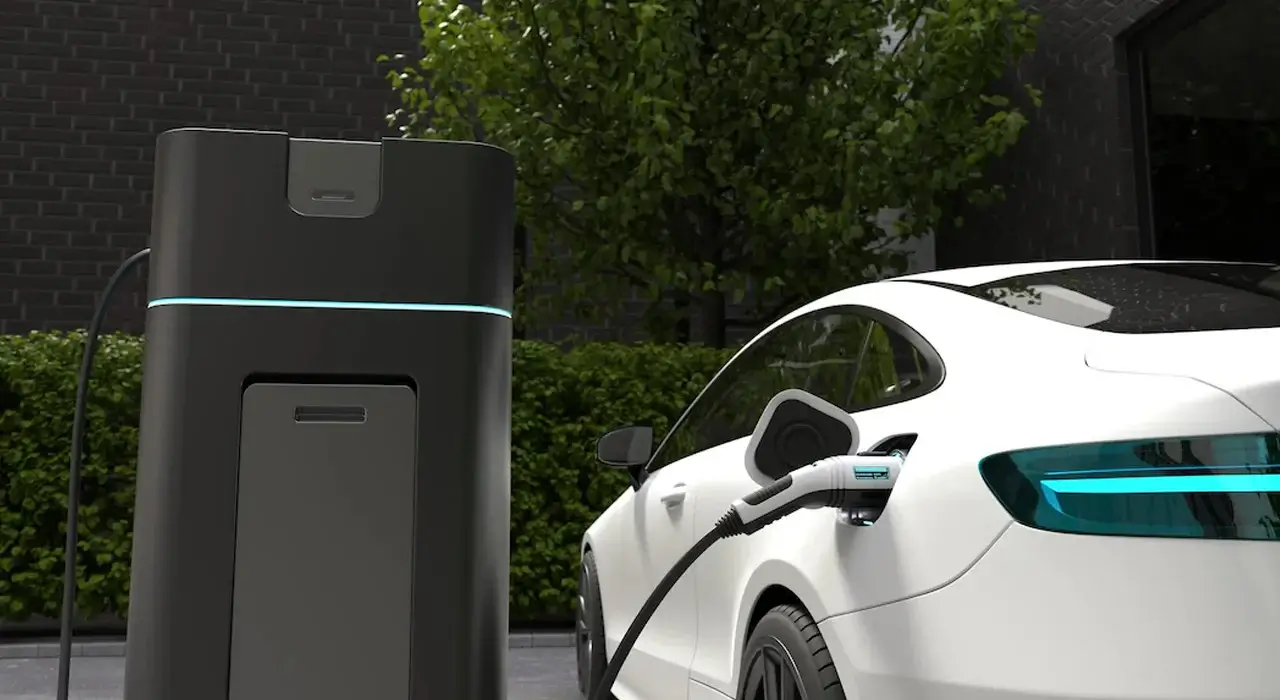Electric vehicles are becoming popular with each passing day. They are said to be the need of the hour. However, people still hesitate as questions like how much it costs to charge an electric car never leave their minds.
For efficient and eco-friendly living, electric cars are the only solution. The government is encouraging people to opt for gasoline or diesel rides.
But the question remains, will owning an EV increase your expense or decrease it? Electric vehicles require charging, which can skyrocket your electric bills to the next level than usual.
It is understandable if you are thinking about charging expenses. It is similar to spending on fuel for your gasoline ride.
Thus, if you are planning to switch to an efficient electric car, we can help you with some crucial questions & doubts about your research.
Keep reading and find the answers related to cost, reliability, charging range, and more.
What Is The Cost Of Charging Station For Electric Cars?
One of the biggest reasons why people in America are still hesitant to own a fully electric ride is the cost of its fuel, also known as its charging.
As the name suggests, electric vehicles are powered by electricity, and the amount you need to spend on them depends on the consumption of your ride.
At present, there are around 41,000 electric charging stations in the United States. However, it is still less, which is why The American Jobs Plan of President Biden claims to construct 500,000 more across the nation.
Currently, average electric car charging stations cost around $6,000 per port. However, there are several factors at play here.
Related: 8 Best Seat Protectors For Car Seats Review & Buying Guide
Thus, the cost of a commercial EV charging station can not be determined vaguely.
Check out the crucial factors that will play a major role in the cost of upcoming EV charging stations.
1. Infrastructure
The foremost & most crucial factor for any project to build up is its infrastructure. In the case of a charging station, it needs to be well-equipped to supply constant electricity.
Infrastructure is prime in the electric vehicle charging station cost. The electricity supply from the main power plant to the station should be secure, interruption-free, and efficient.
Installing a dedicated 480-volt circuit will cost more than the existing 240-volt circuit. In addition, electrical panels, meters, and other things need to be available of the best quality.
2. Equipment
If you want efficient charging, you need efficient equipment. Even for your phone, you ask for a fast charger of top quality.
For EV charging, there are different levels of chargers available. Level One charger is for residential use. You can have it installed in your house.
Level Two and Level Three chargers are ideal for commercial enterprises.
Level Two chargers offer to charge for more than one vehicle, but it can take eight to ten hours to fully charge your ride. It runs on 240V power.
Suggestion: 11 Fastest Cars Under $30000 With Locar Deals
However, the Level Three charger is the most efficient EV charging option. A commercial EV charging station equipped with this Direct Current Fast Charge(DCFC) will charge your vehicle in an hour in a 480V direct current.
Level One charging station costs around $600, Level Two around $2,500-$5,500, and Level Three around $40,000.
3. Software
An EV charging station owner must install software that networks his station with the utility company. It is crucial as this way companies can collect & analyze data to improve their system by learning demands at different stations.
In the US, it generally costs around $28 per month for each port to host all the information on the cloud.
4. Soft Costs
Charging EVs take time. Till the work is done customers like to be valued. Thus, it is not wrong to say that a charging station owner might add some aesthetics & features to make the experience better for his customers.
Such extra services get included in the overall cost and impact the overall station building price.
How Much Does It Cost To Charge An Electric Car At Home?
Charging your electric vehicle at home will raise your electricity consumption higher than usual. Thus, you need to consider the electricity rates before opting for home charging.
The electricity rates in the United States depend on various factors like the region where you live, times of the day with peak charges, time of the year, and others.
Electricity prices vary across the country. So, where you reside will have a huge impact on your home charging cost.
Charging your vehicle overnight is the cheapest way of home charging an EV. It is because most utilities have special low rates for an overnight period as the demand is lightest.
You can have a Level One charging station installed at your home. Having a small charging station at home keeps you tension- & hassle-free. There is no need for you to be in line at the charging station to wait for your turn.
The only drawback here is your elevating electricity bill. But overall, you will still be spending less on your EV charging than on buying gasoline.
How Much Does It Cost To Charge An Electric Car At A Charging Station?
Charging your electric vehicle at a charging station will cost you time and money. There are two types of charging: Regular and Fast Charge.
The regular public or home chargers will charge your ride at a slow speed from hours to overnight time limit.
However, a fast charger is capable of charging an electric vehicle in thirty minutes or less. The supercharge or fast charge will cost you more than the regular one.
Don’t Miss To Checkout: 11 Best New Cars Under $12000 – Reviews Photos & Details
So, if you are thinking about how much it cost to fully charge an electric car, the answer is under $50.
To be precise, it generally costs between $10 and $30 to almost full charge an almost empty EV at a commercial charging station.
The regular charging will cost you around $12 for a full charge, while the DC fast charging costs around $16 for the same. But the overall cost depends on the size of your battery.
Different Factors That Affect The Charging Speed Of Your EV
You might have noticed that your EV might charge slowly or faster compared to other models.
There is nothing wrong with your car. Various factors lead to this charging speed difference among vehicles that seem to be of the same size.
If you want to know what affects the charging speed of your electric vehicle, check out our listed factors below:
A. Battery Size
The most crucial factor that affects the charging speed of any EV is the size of its battery. The bigger the vehicle, the larger the battery capacity.
So, the bigger the battery size, the longer it will take to charge.
B. Current State Of The Battery
The time at which you put your EV for charging and the state of your battery at that time plays a crucial role too.
If your charging is almost empty, it will take longer to charge compared to if it is more than fifty percent full.
This is why when many people are at charging stations, they get frustrated to see bigger vehicles getting fastly charged than their small ones.
Here the present power level of the battery is the hidden reason for such a scenario.
C. Charging Rate Of The Vehicle
Different EV brands have different maximum charging rates. No matter how luxurious or grand a vehicle is, it will only charge at its maximum charge rate.
In Layman’s terms, you can not charge an EV with a max charge rate of 7kWh any faster with a 22kWh charge point.
Popular Post: 7 Best Car Seats For 4-Year-Olds Review A Parent Can Buy
It does not matter how fast your charging station is. Your vehicle will charge at the speed of its structural build-up.
D. Maximum Charging Rate Of Charge Point
Just like the maximum charging rate of your vehicle, the maximum charging rate of the charging point you are using is also crucial.
Your vehicle can have the top-most charging rate circulating in the market but still, it will charge only at the max capacity of the station.
For example, a vehicle with a max charge capacity of 16kWh can charge at 11kWh on an 11kWh Charging Point.
E. Environmental Factors
A colder temperature makes your charging time slightly longer than usual, especially when using a super-fast charger.
This is because the vehicle uses up a huge amount of energy to bring the cabin & battery to the normal temperature.
Overall, in colder temperatures, EVs become less efficient, giving you fewer miles as stored energy gets used in maintaining temperature.
Thus, it is advised to use the regular top-up charges during cold temperatures.
How Long And How Much Does It Cost To Charge An Electric Car?
The charging cost for an electric vehicle varies due to the place and medium you choose. Charging your ride at home will cost you differently than at a station.
If you do not want to spend extra for fast charging but at the same time do not want to charge your ride for hours at a charging station, then going for home charging is ideal for you.
You can have a LEVEL ONE charging port installed at your place and leave your EV charged overnight. The charging is comparatively slow than other levels, but you get the comfort of your house and no waiting & sleep disruption.
Going for home charging will surely surge your electricity bill. But overall, it will cost you less than a gasoline ride. At home, it will cost you around $10 for a single charge and a minimum of eight hours for a full charge.
If you choose LEVEL TWO and LEVEL THREE fast charging systems, there is no comparison with LEVEL ONE.
As said before, charging cost varies as per availability & electricity cost around the country.
You again can have a LEVEL TWO charging points installed in your house, but it can easily cost you around $2000 for it.
This fast charger will cut your charging time in half, but you might see a surge in your electricity consumption. It can cost you around $20 for one charge.
However, if you choose to go for public charging stations, then it can easily cost you around $15-$20 to use Level Two or Level Three fast charging.
To sum it up, you can expect to have an average price between $10 and $20 for your one-time full charge despite where & how you choose to charge.
Does It Cost More To Charge My EV On Public Charging Stations?
Apart from the level of charging you choose, the time your ride takes to get charged also factors into the price.
A fast-charging station will cost more than the regular one. And if you are charging an almost empty ride, it will cost you more compared to a half-charged ride.
Popular For You: 7 Best Cold Air Intake For Chevy Silverado 1500 Reviews
There are no fixed prices for EV charging in the United States as electricity price varies throughout the nation.
However, it is easy to say charging your ride at a public safe super charging station will cost you more than home charging.
Some Money-Saving Charging Tips On Electric Car
Home charging an electric vehicle is much cheaper than public charging stations. Installing a charging station at your home might seem costly at first, but it will make up for the cost in no time.
Although having a personal charging station does sound flattery, it is not a sustainable option for everyone.
Thus, the best you can do is opt for some handy measures to cut back on your charging expenses.
Below we have listed some easy money-saving charging tips that anyone can follow easily.
Start using the EV phone application to choose the ideal charging time. You can find the most appropriate start & stop time when the electricity rates are lower in your locality.
This will ensure you get your ride ready but at the minimum expense.
The charging of an EV slows down dramatically for the last 15-20% of the battery capacity. Thus, if you are charging at a public station, it is clever to stop charging when your ride reaches 80% capacity.
Always preheat your vehicle in winter while it is still plugged in for charging. This way you do not have to waste your battery charge on heating while driving.
Conclusion
Electric Vehicles are the rides of the future. To attain the goal of saving the environment and decreasing carbon emissions, EVs can be the friends of mankind.
It is understandable to have questions like how much it costs to charge an electric car and more. Getting answers to such queries is the only way to familiarise yourself with the concept.
We hope this article helps you with all your EV-related queries in the best manner.





